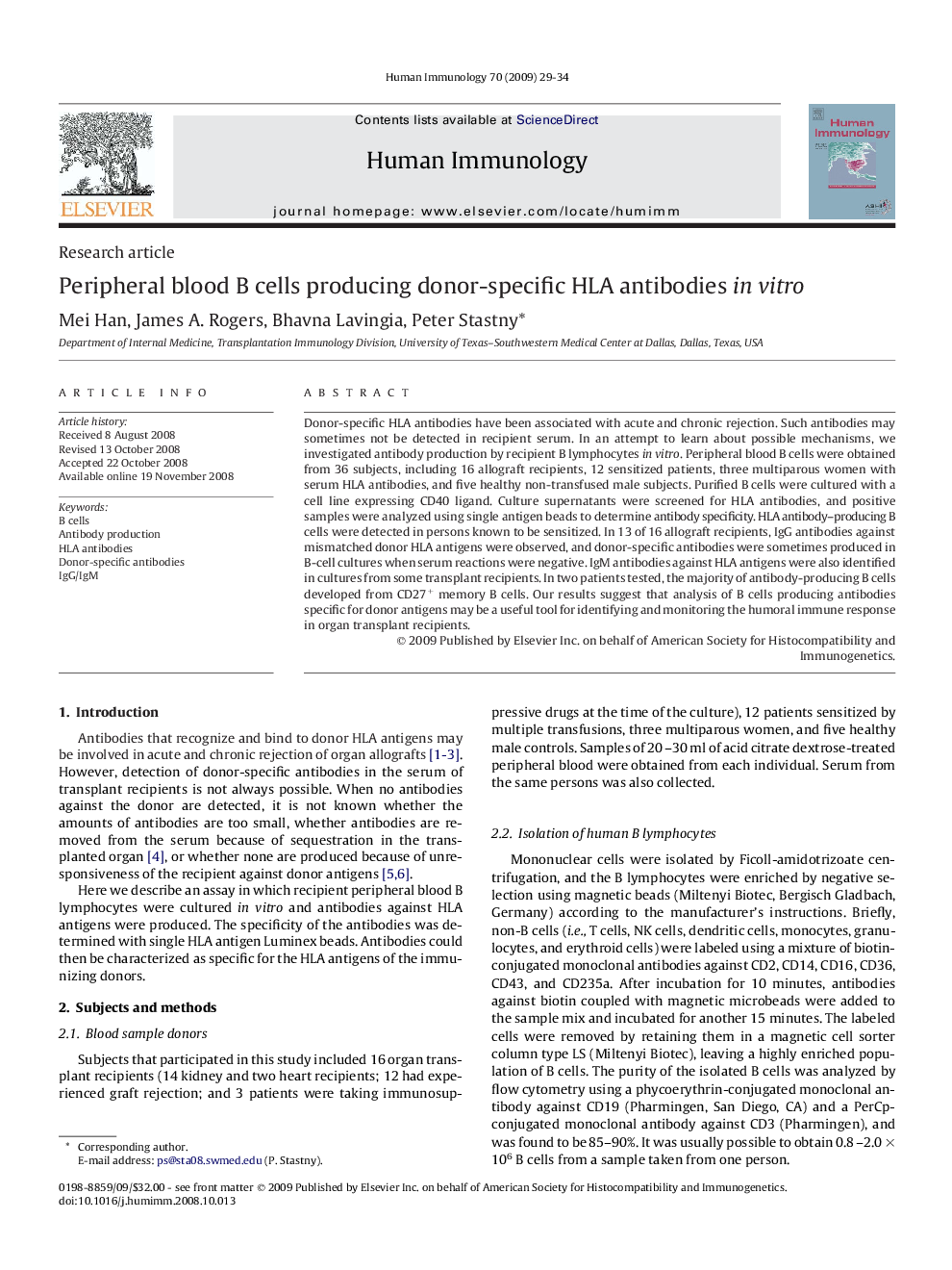| کد مقاله | کد نشریه | سال انتشار | مقاله انگلیسی | نسخه تمام متن |
|---|---|---|---|---|
| 3351785 | 1216442 | 2009 | 6 صفحه PDF | دانلود رایگان |

Donor-specific HLA antibodies have been associated with acute and chronic rejection. Such antibodies may sometimes not be detected in recipient serum. In an attempt to learn about possible mechanisms, we investigated antibody production by recipient B lymphocytes in vitro. Peripheral blood B cells were obtained from 36 subjects, including 16 allograft recipients, 12 sensitized patients, three multiparous women with serum HLA antibodies, and five healthy non-transfused male subjects. Purified B cells were cultured with a cell line expressing CD40 ligand. Culture supernatants were screened for HLA antibodies, and positive samples were analyzed using single antigen beads to determine antibody specificity. HLA antibody–producing B cells were detected in persons known to be sensitized. In 13 of 16 allograft recipients, IgG antibodies against mismatched donor HLA antigens were observed, and donor-specific antibodies were sometimes produced in B-cell cultures when serum reactions were negative. IgM antibodies against HLA antigens were also identified in cultures from some transplant recipients. In two patients tested, the majority of antibody-producing B cells developed from CD27+ memory B cells. Our results suggest that analysis of B cells producing antibodies specific for donor antigens may be a useful tool for identifying and monitoring the humoral immune response in organ transplant recipients.
Journal: Human Immunology - Volume 70, Issue 1, January 2009, Pages 29–34